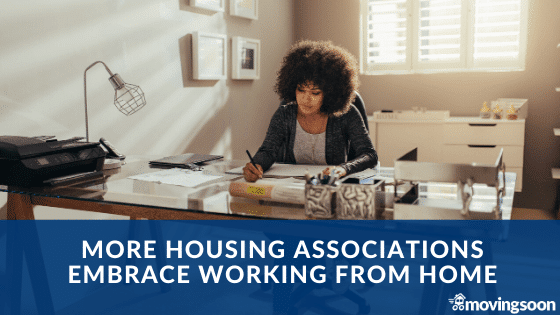With more and more organisations opting to continue working from home, Twitter announced in May that their workforce can work from home indefinitely if that is what they want.
This is not a new practice in the working world however a lot of organisations do not offer this. This is something which has been seen across the housing industry for a few years.
Could we see more housing associations taking part in flexible working?
We have seen a rise in the amount of housing associations encouraging flexible and remote working due to the coronavirus pandemic. Halton Housing were already at the forefront of this even before the pandemic started, offering flexible working since June 2014. We have had the pleasure of visiting their offices and understanding how they work. They already provide their staff with laptops, iPads and work mobiles to be able to work remotely. So this was already in practice well before Covid-19 took hold.
Another Housing Association, an existing client of ours, which has altered their working practices is Orbit. As reported recently by Inside Housing they have increased the amount of their staff working from home to 87% of their 1200 current workforce. They state that they had already had been participating in aspects of flexible working but they were not as agile as they wanted.
According to this article Your Housing Group has also committed to encouraging more flexible working with just over 81% of their work force now being able to collaborate with each other remotely over Microsoft Teams. They were able to roll this out quickly, which proves hopeful and encouraging for those other organisations who may be thinking of making the switch to more flexible working.
How will working from home change the typical work environment?
Working from home could be a new concept to some people who had never been offered this before. You could potentially be going from working in an office with 10+ other people, to then working solo from home. This could lead to staff feeling disconnected from their co-workers and not working as a team. This isolation could easily be combated by making sure that you have daily/weekly catch ups with your coworkers and arranging meet ups to discuss work or outside of work. This is something which Halton Housing already have in practice with
Working from home will most likely change the future of team meetings and how we engage with others. Previously, we may have arranged a slot to meet up in a meeting room to discuss ideas and new processes. However, due to the majority of people having to work from home during this time, due to the Covid-19 pandemic, we have seen an increased number in video meetings and online webinars. These working practices could stay the same once things start getting back to ‘normal’ with lots of companies benefiting from the reduced costs of these meetings and the flexibility available by doing them.
Is working from home really that good?
We think working from home can be a good thing, if this is what works best for the employee. Working from home can benefit many people due to a range of factors. These can be reduced travel time, more flexibility, the ability to do house work/ tasks on your breaks, and my personal favourite; keeping your pet company. We have previously discussed the benefits of working from home in more detail.
However, working from home is not for everyone. For some, going to work can be seen as an escape and a break from the household and to remove this fixed place of work may not be the best for some. This is a challenge that many organisations face with their employees and organisations such as Halton Housing, Your Housing and Orbit have found ways to combat this. They have created resources for their teams to keep them in touch with one another and have focused on keeping the social aspect of their job intact.
Working from home can also be hard for others as they are not leaving the house to go to and from the workplace. This may prove a struggle for some people to switch off as there is no physical boundary between work and the home. To try and make this distinction clearer you should choose a place in the house to work from and then once you have finished work or are on your break, you should then go to another room/space. This will help you to distinguish when you should be working and when you have finished.
How have you adapted to working from home? Get in touch and let us know your thoughts.


